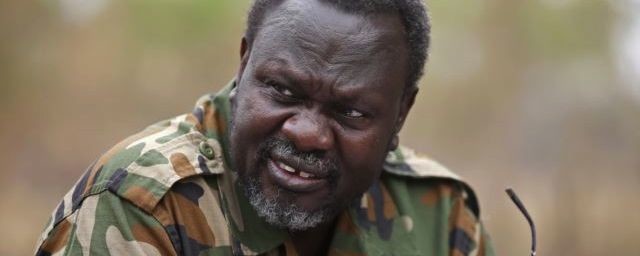Riek Machar group fails to attend roundtable peace talks

The main South Sudanese rebel group, SPLM-in-Opposition led by Riek Machar, declined to attend a session of the new round of peace talks in Addis Ababa on Tuesday, just a day after attending the opening ceremony.
All invited parties joined the opening ceremony on Monday, including SPLM-Juba, SPLM-IO, religious leaders, civil society, SPLM-DC and other PPLF members, and SPLM-Leaders (Former Detainees).
This represented the most inclusive meeting to date since the start of the peace process in January, in line with the mediators’ plan for “multi-stakeholder roundtable talks.”
After this opening session on Monday, Tuesday would have marked the first day of substantive negotiations since an adjournment of six weeks.
However, the negotiators representing Riek Machar’s group did not attend, according to the Inter-Governmental Authority on Development (IGAD), the East African regional organization mediating the peace process.
In an e-mailed statement on Tuesday, IGAD explained, “On 5 August 2014, the SPLM/A (In Opposition) failed to attend the peace process for South Sudan.”
A rebel official explained to Radio Tamazuj that the reason is that they object to the involvement of the SPLM-Leaders faction as direct ‘stakeholders’ and want instead direct talks only with the SPLM-Juba faction.
Mediators consider this a breach of earlier commitments made by SPLM-IO to accept the involvement of all stakeholders.
“SPLM/A (In Opposition) had repeatedly assured the mediation of their commitment to the inclusive, multi-stakeholder roundtable peace process and the modalities for comprehensive talks,” the mediators’ statement reads.
IGAD called on the SPLM-IO to “honour its commitment to resolve the crisis,” saying the talks would resume Wednesday in spite of this incident – apparently in order to give the SPLM-IO negotiators another chance to re-join the process.
In an interview with Radio Tamazuj late on Tuesday, the acting chief negotiator for the rebels Dhieu Mathok sought to clarify what happened.
While acknowledging that they refused to sit with the other stakeholders, he insisted that they have not withdrawn from the negotiations nor boycotted them, but remain committed to the peace process.
He said they approached the mediators to ask them for direct negotiations with the government without involvement of the SPLM-Leaders group.
This same demand on the part of the rebel delegation at the last round of talks in June prompted the mediators to adjourn the talks for over a month, after the mediation announced the SPLM-IO “failed to attend the multi-stakeholder roundtable negotiations.”
At issue is whether the SPLM-Leaders group and other stakeholders will have a ‘direct’ or merely consultative role in talks – a question that has probable implications for the process of formation of the transitional government.
Few if any substantive issues were discussed prior to the SPLM-IO walkout on Tuesday. According to a representative of the SPLM-Leaders faction, John Luk, the mediators earlier on Tuesday handed over a proposal on the agenda for the talks.
In an interview before the walkout, he said the proposed subjects for discussion included setting up a transitional government and the process for making a new constitution. He disclosed that the delegations were supposed to convene on Tuesday evening to hand over their feedback to the mediation on the agenda.
It is not clear whether SPLM-IO had objections to the proposed agenda, or something else triggered their walkout, or they had planned the move earlier.
Commenting on this latest development, the British Ambassador to South Sudan Ian Hughes stated, “Leadership is needed to heal South Sudan. Leadership includes the needs of all citizens. Today South Sudan negotiators in Addis declined to lead.”
File photo: Riek Machar
Related: